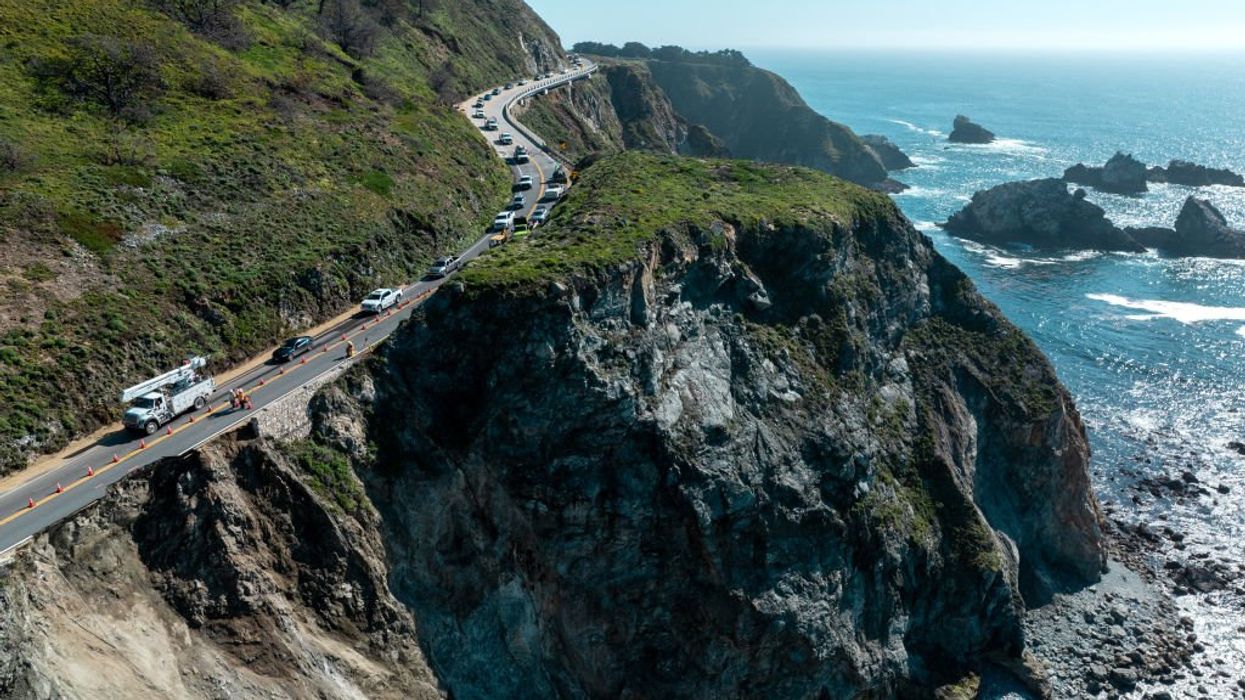Commentary by Christopher Kieser, an attorney with Pacific Legal Foundation and a fellow with PLF’s College of Public Interest Law. He authored the amicus brief that PLF has submitted in the Friends of Martins Beach case, and he will be submitting an amicus brief, also in support of property rights, in the Surfrider case.
–
California venture capitalist Vinod Khosla, a co-founder of Sun Microsystems, is a major proponent of environmental causes. For example, he was a prominent supporter of Proposition 87, a failed statewide ballot initiative that would have taxed oil producers to fund a $4 billion Clean Alternative Energy Program designed to reduce consumption of fossil fuels. He also bankrolled the successful campaign against an initiative that would have repealed California’s job-killing cap-and-trade regulations. And he is a high-profile donor to Democratic politicians, including President Barack Obama.
But recently, Mr. Khosla has received publicity as the target of activists who’ve sued to demand unrestricted public access to his beachfront property south of Half Moon Bay, a coastal town in the San Francisco Bay area.
 (AP/Gregory Bull)
(AP/Gregory Bull)
The cases have forged an unlikely alliance between Kholsa and property-rights advocates. Even if they dislike his advocacy of costly environmental legislation, many thoughtful property-rights supporters view Mr. Khosla’s legal fight as a canary-in-the-coal-mine moment.
If a politically connected billionaire isn’t allowed to keep his own property private, whose property rights are safe?
The cases revolve around Martins Beach, an ocean cove at the edge of 89 acres of coastal property that Khosla purchased in 2008.
The previous owners allowed the public to drive across the land and onto the beach, charging a small fee to park there. They installed public bathrooms and a convenience store, and maintained a billboard advertising beach access. But they eventually began to lose money on this commercial operation. Unable to afford improvements to the property, they sold it to Khosla.
Initially, he intended to keep the pay-to-park program going. But high overhead costs meant that he either had to charge the public more or operate at a loss.
However, San Mateo County not only balked at his plan to raise the fee for parking, it ordered him to lower the price – back to the amount charged in 1973.
Faced with this bureaucratic obstacle, Khosla saw no option but to end public access altogether and lock the gate to his property.
As a result, he was hit with two lawsuits. In the first, an organization called Friends of Martins Beach argues that the state has a “public trust” authority over Khosla’s beach and that the public has a right to cross his property to get to it.
These novel claims distort basic tenets of property law. Although there is a public trust in navigable waters, it doesn’t cover adjacent private property. Case law in California (and most of the rest of the country) defines it as extending only to the average high tide line. Under these precedents, dry, sandy beach property like Khosla’s does not fall within a public trust.
Further, even where a public trust in navigable waters exists, there is no right to cross private property to get there. Friends of Martins Beach cites a provision in the California Constitution that recognizes a public “right of way” to “the frontage” of coastal waters. But this protects access to the beach from the water itself; it doesn’t create a public easement across private, inland property. If courts were to hold otherwise, they’d be creating, in essence, a “freedom to trespass.”
The second lawsuit is equally troubling.
Surfrider Foundation contends that Khosla has to get a permit from the California Coastal Commission before he can lock the gate to his land. Surfrider says that the acts of locking the gate and taking down the billboard constitute “development” under the California Coastal Act, because they cause a change in the “intensity” of coastal access.
This claim would have far-reaching implications. It could require many California coastal landowners – not just Khosla – to seek a permit if they wanted to restrict public access to their land. They might even need Coastal Commission approval to do everyday things on their property. For example, would permission be needed to host a party, because more than the usual number of people would be on the land?
Both cases are now at the California state appellate court. At the trial court level, Khosla prevailed against Friends of Martins Beach, but in the Surfrider case, the judge held that locking the gate did indeed fall under the definition of “development,” requiring a permit. The court ordered Khosla to keep the gate open while he seeks Coastal Commission approval to close it.
That result highlights the constitutional concerns that are at stake.
The U.S. Supreme Court has repeatedly said that the right to exclude trespassers is “one of the most essential sticks in the bundle of rights that are commonly characterized as property.” Yet Khosla is being deprived of this right without a penny in reimbursement – even though the Fifth Amendment says government cannot take private property without just compensation.
The importance of property rights transcends the social and economic distinctions in our society. Wherever you are in life, your right to own and make reasonable use of property – and to keep it truly private, so it’s yours in reality, not just in name – is a fundamental liberty.
Vinod Khosla should be applauded for standing up for these principles, and both of these cases bear watching as they move forward on appeal. By litigating for his own property rights on the California coast, he is defending protections that safeguard all homeowners and other property owners, no matter where they live.
–
TheBlaze contributor channel supports an open discourse on a range of views. The opinions expressed in this channel are solely those of each individual author.


 (AP/Gregory Bull)
(AP/Gregory Bull)


